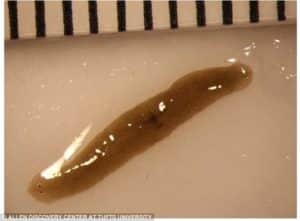A study pertaining to how the absence of normal gravity and geomagnetic fields can affect humans and animals as well as have anatomical, behavioral, and bacteriological consequences is being carried out by a bunch of researchers including some from Tufts University in the US.
Planarian flatworms (Dugesia japonica) are frequently used for studies as they possess a 
During the analysis, an amputated worm that was sent into space showed a rare double-headedness on return; this when further cut i.e., when the two heads were cut off, the middle fragment regenerated into another double headed worm, thus, sealing the deal that this body plan modification was permanent.
On the other hand, the whole worms sample sent into space was observed to undergo spontaneous fission while the control sample that
was on earth did not exhibit any such quality. Thereby proving that the worms had altered their biological state in order to accommodate the environmental changes they were being exposed to.
“During regeneration, development and cancer suppression, body patterning is subject to the influence of physical forces, such as electric fields, magnetic fields, electromagnetic fields, and other biophysical factors. We want to learn more about how these forces affect anatomy, behavior and microbiology,” said Levin, a professor at Tufts University. “As humans transition toward becoming a space-faring species, it is important that we deduce the impact of space flight on regenerative health for the sake of medicine and the future of space laboratory research,” said Junji Morokuma, research associate in the university and part of the team.






























